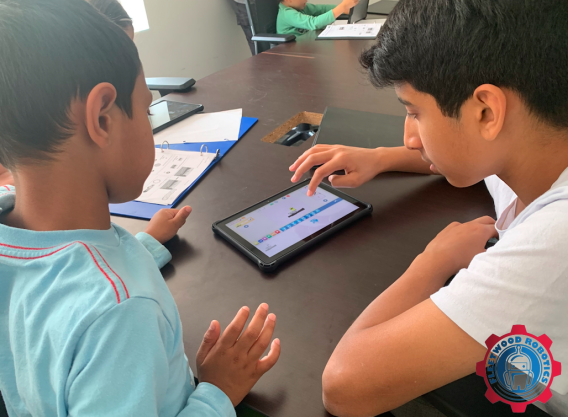Why coding is crucial for kids ages 8-12 years.
In today's digital age, understanding coding is akin to mastering a universal language. As technology continues to permeate every aspect of our lives, the ability to code is not just a valuable skill but an essential one. This holds particularly true for young children between the ages of 8 and 12, as introducing them to coding at an early age can lay the foundation for a host of crucial skills they'll need in the future.
Coding is not just about programming computers; it's about fostering problem-solving abilities, nurturing creativity, and honing logical thinking skills. As we look ahead to the future, the statistics paint a clear picture of the increasing demand for coding skills:
• Projections indicate that by 2030, approximately 6 million coding jobs will be created, constituting a staggering 66% increase.
• A significant 20% of the global workforce is expected to require coding skills by 2030.
• Currently, around 70% of jobs already necessitate some level of coding proficiency.
• According to the U.S. Bureau of Labour Statistics, coding-related occupations are anticipated to grow by 22% by 2030.
• Top-paying jobs like software engineering, data science, and machine learning are in demand, along with proficiency in programming languages, cloud computing, and data science.
• Roles such as web developer, mobile app developer, and software engineer are witnessing rapid expansion.
But why is coding so crucial for kids aged 8 to 12? Let's delve into the reasons:
1. Developing Problem-Solving Skills: Coding teaches children to approach complex problems methodically, breaking them down into manageable steps and devising creative solutions.
2. Fostering Creativity: Through coding, kids can unleash their imagination, creating games, animations, websites, and various other projects that reflect their unique creative visions.
3. Honing Logical Thinking: Coding encourages children to think logically and sequentially, skills that are invaluable not only in coding itself but also in academic pursuits and real-world problem-solving scenarios.
4. Building Resilience and Persistence: Learning to code isn't always smooth sailing; it involves encountering and surmounting numerous challenges. By persevering through these obstacles, kids develop resilience and the determination to overcome setbacks.
Practical applications of coding for kids aged 8 to 12 span a wide spectrum:
• Creating simple games to understand programming concepts.
• Designing basic websites or digital stories.
• Experimenting with robotics kits to understand basic engineering and programming principles.
• Automating tasks through simple programming scripts or commands.
• Exploring digital art and music creation through coding-based platforms.
• Controlling basic physical devices using coding and electronics kits.
In conclusion, coding is more than just a technical skill; it empowers the next generation of innovators and problem-solvers. By introducing children to coding at a young age, we equip them with the essential skills needed to thrive in an increasingly technology-driven world. Let's inspire and support our young learners as they embark on their coding journeys, laying the groundwork for a future filled with endless possibilities.
For more information visit our website: Fleetwood Robotics
Join our WhatsApp Channel: Fleetwood Robotics WhatsApp Channel



.png)
Comments
Post a Comment